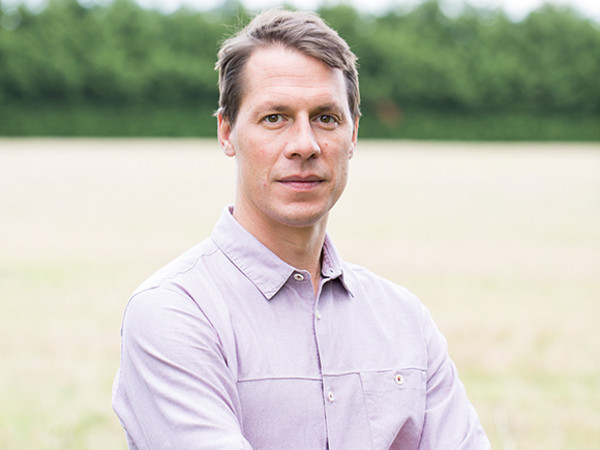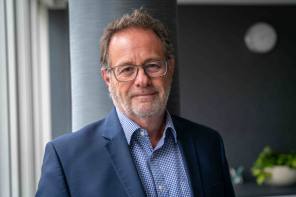

Then Lehman Brothers collapsed, ushering in the global financial crisis. This led him and his brother-in-law Hugh Yarrow to set up Evenlode Investment.
Mr Peters, who is fund manager and director at Evenlode Investment, said: “In 2008 nobody was hiring and so it kind of forces you to say, ‘Let’s give this a go and let’s get it up and running’.
“The timing, as it turned out, was good, but it did not seem like it at the time. The idea was that we would be doing this in 10-15 years, hence, maybe even starting around now, but the financial crisis came along and sort of forced the issue.”
So they moved into a space in the wealth management office of Mr Yarrow’s father in the Cotswolds and set up from there.
Evenlode Investment describes itself as a young team with old fashioned values. It has two funds: Evenlode Income, which focuses on UK listed businesses, and Evenlode Global Income, which invests in firms from around the world.
The old fashioned values relates to investing in equities for the long term.
Mr Peters said: “It’s that notion that when you buy a stock you are buying a bit of a company. The stock price will bounce around as people buy and sell it on the market.
“Sometimes we can use it to our client’s advantage, but actually our focus and energies are spent looking at companies, deciding whether these match with our stated requirements and then acting according to that; rather than because share prices are bouncing around.”
Evenlode’s investment strategy is focused primarily on analysing businesses, rather than markets or macroeconomics. Obviously you have to have a market context where every business sits. We do it out of some understanding of that, but we don’t make macro predictions,” he added.
“We are looking for businesses which have attractive microeconomics – they generate high levels of return on the capital invested in them and have good levels of cash flow.”
When Mr Peters was young he did not see himself as an astrophysicist – the subject of his PhD – rather he wanted to become a goalkeeper.
After that dream was put to bed, the other passion he had was science. After completing his degree at University College London, becoming a fund manager was not on his cards.
His astrophysicist peers who went into financial services were working in structured derivatives or high frequency trading.
Mr Peters said: “I looked at that and thought, it is kind of interesting, but what does it do?
“But investing – I can understand that. I was really interested in how the economic world works. In my physics career I learned how the physical world worked. [Investing] is learning about how the economic world works.”
As a trained scientist, perhaps it is not surprising that one of the sectors that is exciting him is the pharmaceutical sector – where many companies are facing a patent cliff.
This is where a company’s revenues could ‘fall off a cliff’ when one or more established products go off-patent, since these products can be replicated and sold at much cheaper prices by the competition.
As pharmaceutical companies go through this challenging period, it is coinciding with a rise in the number of research driven businesses.
“We are much more interested in businesses that develop novel drugs; that’s where you can get a win-win situation for the healthcare system and individual patients.”
These medical concepts tend to stay novel for a while, because of how long it usually takes to get through the trial phase – giving these research companies a competitive advantage. As health organisations increasingly look at personalised medicine, this has paved the way for more research and development companies.
By combining and analysing information about a person’s genome, with other clinical and diagnostic information, patterns can be identified to help determine an individual’s risk of developing a disease or detect illness earlier.
Other sectors that Evenlode is interested in include consumer goods, media and technology – sectors that are evolving as machine learning and artificial intelligence grow in popularity.
As Brexit looms in the distance Mr Peters said despite the possible threats to the UK exiting the EU, this has not caused the company to change its investment approach of analysing businesses rather than markets.
Additionally, a large number of its UK listed businesses derive their revenues globally.
But an area of the business that it is making changes to is its approach to environmental, social and governance issues.
This is as a result of demands from advisers who are asking more questions about ESG. Last year, Evenlode brought in Sawan Kumar as a stewardship analyst to focus more in this area.
Mr Peters said: “This is something I had been doing in my spare time. But as our business grew, we obviously wanted to make sure we had the capacity not just from a financial viewpoint, but to look at whether the right governance in place and how that is affecting strategy and remuneration policies.
“Are there any risks we can perceive through not enough attention being given to environmental factors? It is something we have seen more demand for, and have been proactively building on.”
Ima Jackson-Obot is a features writer for Financial Adviser and FTAdviser



